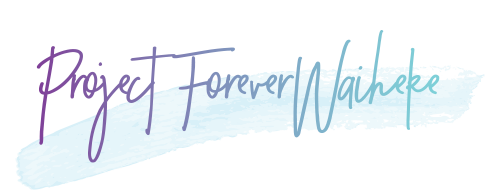While this summer of golden weather brought the usual influx of tourists and visitors, it has all come to an abrupt end with the arrival of the coronavirus that is ravaging the world. As I write, the island under lockdown is as peaceful and serene as it was when I first came to Waiheke in 1973; the only sound I can hear is birdsong. And although the cause is deeply unsettling, I know some of us are relishing the resulting peace and quiet. It is great to walk around our neighbourhoods without fear of speeding traffic, and experience the kind of community friendliness and neighbourliness that were the hallmarks of the Waiheke community in previous decades.
This may be a good time to reflect on our value, and values, as a cohesive and supportive community, and ask ourselves how we can rethink our economic value as a tourist destination without incurring the negative impacts of overtourism.
The Parliamentary Commissioner for the Environment (PCE) Simon Upton has warned in a recent report that increasing numbers of tourists are eroding the very attributes that make New Zealand such an attractive country to visit.
“To date New Zealand has been relatively immune to the strident protests about ‘overtourism’ that have hit major European cities like Barcelona and Venice in recent years.” But we mustn’t be complacent, he says.
“A business-as-usual approach to growing our tourism sector will have devastating consequences for the natural environment which is the major drawcard for our tourists…We need to consider how tourism can protect the environment while enhancing the wellbeing of New Zealanders, both those working in the industry and those living in the places that tourists like to visit.”
Read the full story.
Of course we can’t underestimate the devastating effect of Covid 19 on New Zealand’s largest export earner, which contributed $14.5 billion (20.7%) to total exports for the year ending March 2017. (1)
But international tourism also costs the government a big chunk of money.
Deloitte Access Economics (2) estimates that central government agencies incurred $638 million in tourism-related expenditure in 2017, spent on infrastructure, land transport, DoC services etc.
Domestic tourists have a big impact too, the PCE report notes, but our carbon footprint is typically far smaller because we are not taking long-haul flights. We also tend to travel to more places that are off the beaten track, and support locally-owned businesses. So perhaps, when the coronavirus is under control, we can start to restore our economy by encouraging more New Zealanders to come to Waiheke. (‘Don’t leave town til you’ve seen the country’.)
This focus on domestic tourism is a key aspect of ATEED’s Strategy , with its strong focus on sustainability. Our Local Board is also considering the adoption of core aspects of the Waiheke Sustainable Community and Tourism Strategy.
Tourism operators on Waiheke also commented in Project Forever Waiheke’s 2018 community consultation that they wanted to attract more people who will stay for a number of nights in preference to day-trippers, who commonly contribute relatively little to the Waiheke economy.
While we have this current opportunity to stand back and re-think local values, we could think about what sustainable and responsible tourism actually looks like. We could look to the example of Magnetic Island, which is roughly as far from Townsville, Australia, as Waiheke is from Auckland. There, the resident population has battled with tourist-focused developers for more than 20 years, and many residents continue to be opposed to any form of tourism.
However, locals are now working with the tourist businesses on a range of sustainability initiatives: solar power across the island, working towards carbon neutrality, supporting better management of the island’s national park, moving to electric powered public transport, encouraging more tourism businesses to adopt specific sustainability initiatives, and developing an interest in education for visitors about both the natural environment and sustainable lifestyles. Other initiatives include eliminating plastic packaging and water conservation.
Our hardworking Local Board, as well as dozens of volunteer-based organisations and initiatives on the island, are already doing many of these things, albeit in a somewhat ad hoc fashion: See PFW’s MAD webpage.
The way we have responded to the coronavirus crisis is testament to our love of this beautiful island and its unique community. By supporting our friends and neighbours and wherever possible our local businesses, we can keep it safe until such time as we can welcome visitors again.
Keep your distance, but stay connected. We’re in this together.
Kia kaha, Waiheke!
1. Statistics New Zealand (International Visitor Survey), Tourism Satellite Accounts, December 2017.
2. Financial Costs and Benefits of International Tourism: Ministry of Business, Innovation & Employment, 13 April 2018
Read More

